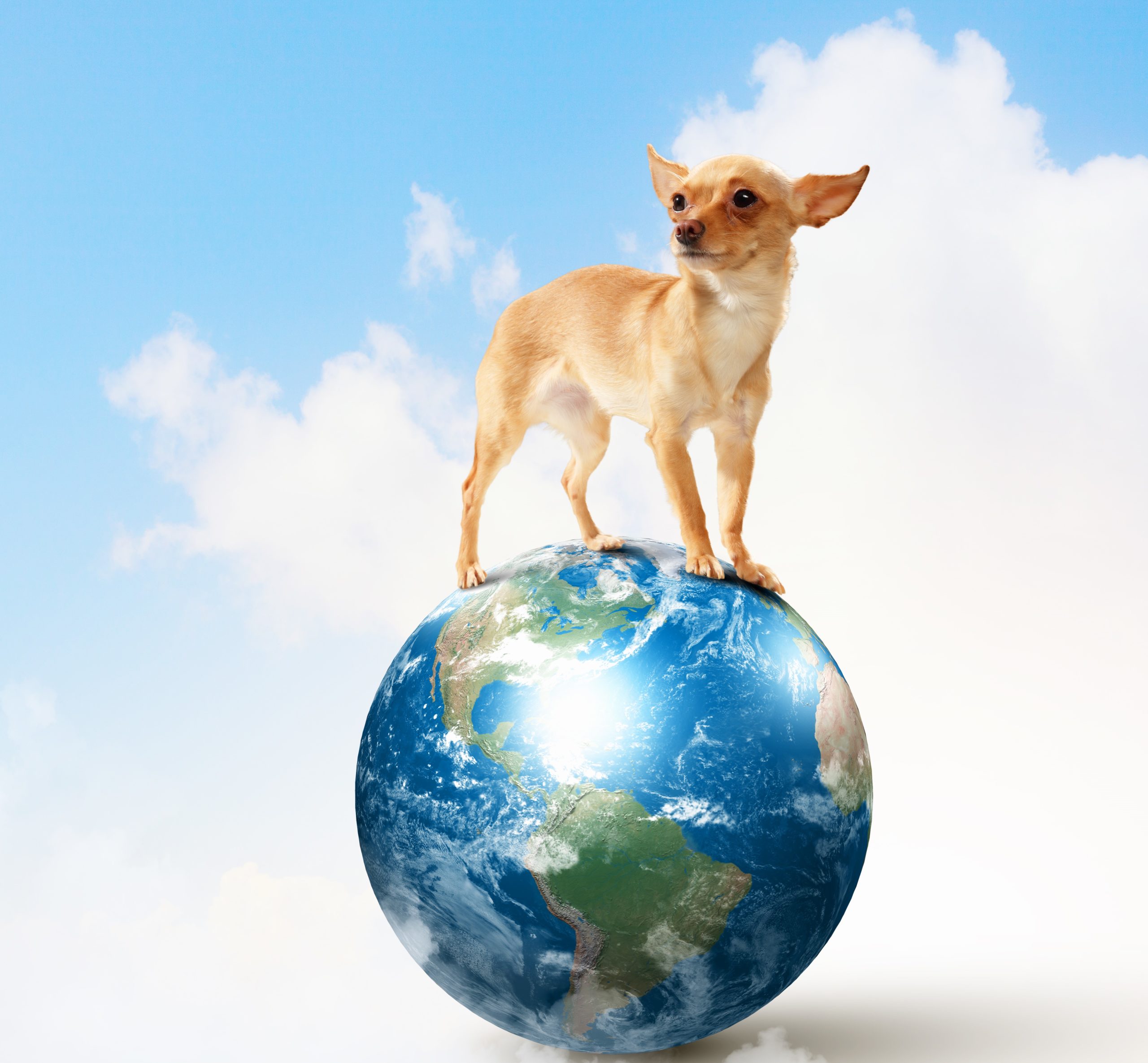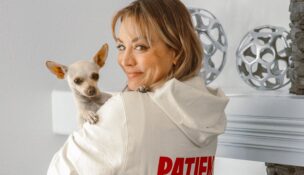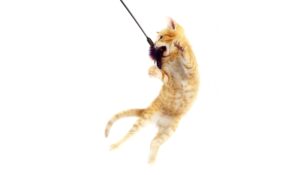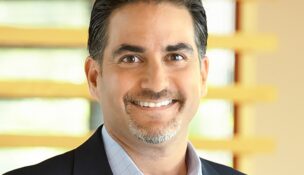The Paw Print: More Pet Brands Making Sustainability Pledge
Glenn Polyn //October 1, 2022//
Known in the booming backyard chicken market for its sustainable insect-based pet food, Grubbly Farms announced in March it was entering the dog treat market. Rather than using traditional protein that is unsustainable and often causes allergic reactions, Grubbly introduced Vroomies, a hypoallergenic and easily digestible dog snack made with farm-fresh vegetables and grub protein.
Like the company’s other sustainable superfoods, Vroomies boasts a signature ingredient of dried black soldier fly grubs, an insect Grubbly’s founders first introduced to the backyard chicken market in 2016. While Grubbly began growing its own grubs in the early days, the company soon developed partnerships with sustainable farms in the U.S. and around the globe. Grubs are an alternative animal-based protein that is healthy for pets and easy on the earth. They are packed with nutrients and sustainably grown with 90 percent fewer resources than conventional protein like beef. The grubs consume a diet of recycled fruits, vegetables and grains that would otherwise go to waste. Just one pound of dried grubs helps to divert 10 pounds of food waste that would otherwise end up in a landfill. Unlike traditional sources of meat, grubs are a novel protein to which dogs have not developed allergies, which is ideal for pets with food sensitivities, and they offer 35 percent more protein than steak.
“Birds, companion pets and other animals naturally love to eat grubs,” said Sean Warner, CEO and co-founder of Grubbly Farms. “We surveyed our current customer base and found that the majority have dogs, so it was a natural next step to expand into the dog food space. Pet parents care deeply about their pet’s nutrition and are constantly seeking ways to provide healthier options for them. With Grubbly, our customers can better nourish their pets and feel good about lessening their environmental impact while doing so.”
Grubbly is one of many pet brands pointing to a MarketWatch report that notes how cats and dogs are responsible for 25 percent to 35 percent of the environmental impact of meat consumption in the U.S., which equates to 64 million tons of carbon dioxide a year. In fact, if America’s pets were their own country, their meat consumption would rank fifth in the world behind Russia, Brazil, the U.S. and China.
Nutrient-rich grubs not only offer a highly digestible protein for pets, but they also lighten landfills by recycling food waste; provide cleaner air by producing 20 times less carbon dioxide than beef and uses 2,000 times less water compared to beef. Plus, Grubs serve as a direct replacement for fishmeal protecting over 150,000 pounds of fish every year. Thanks to sustainable grub protein at the heart of Grubbly’s recipes, every bag of Grubbly pet food makes a difference. One bag of Vroomies equals 2.25 pounds of recycled food, and Grubbly has plans to introduce dog food which will recycle over 80 pounds of food waste with every bag, equating to 1,244 miles driven in a car and CO2 saved. To date, Grubbly Farms has recycled over 13 million pounds of food waste.
Project Hive Pet Company is an example of a pet company that includes sustainability efforts in its mission statement: the company’s mission is to save the bees for the simple reason that bees are essential to our food supply and a sustainable future for pets, people and the planet. To advance its mission, Project Hive donates one percent of sales to The Bee & Butterfly Habitat Fund to establish healthy wildflower habitat that nourishes and sustains the bees.
Founded as a Public Benefit company, Project Hive is a member of 1% for the Planet and the Pet Sustainability Coalition (PSC), where the brand works to help advance sustainability in the pet industry. Project Hive’s advocacy work is evident on many fronts, including its product design: The line of dog toys and treats all sport a beehive-inspired design language, reminding pet parents to think about the importance of saving the bees.
Project Hive co-founder Melissa Rappaport Schifman is no stranger to sustainability. As a LEED Accredited Professional, she has spent the past decade helping businesses and organizations become more sustainable and authored the book Building a Sustainable Home (Skyhorse Publishing, 2018).
“While making all of our toys and treats in the U.S. helps reduce freight emissions, we are still mindful of the emissions created by shipping products around the U.S. and are working to mitigate and offset those greenhouse gases,” said Schifman regarding the impact of carbon emissions on the planet.
In addition to its mission, Project Hive considers sustainability issues throughout the company’s supply chain, such as where the material comes from; how it’s made, shipped and packaged; and what happens to it at the end of its useful life.
“Here at Project Hive Pet Company, we like to say, let’s make our planet thrive – one happy dog and countless bees at a time,” said co-founder Jim Schifman.
Project Hive is not alone in seeking partners to enhance and strengthen their sustainability efforts. Many manufacturers have partnered with organizations like the PSC for their sustainability endeavors. The members of PSC, a highly respected 501c3 nonprofit that advances business through profitable environmental and social practices within the global pet industry, represent the global supply chain, including suppliers, manufacturers and retailers.
Members of the pet industry are finding other ways to positively impact the environment. Earth Animal was one of 20 pet food brands from the United States, Canada and New Zealand that announced this past March that, in partnership with rePurpose Global, they had recovered 2,000 tons of plastic waste from nature, the equivalent of 111 million plastic bottles or one billion plastic bags in weight. In an effort to tackle the issue of plastic pollution, the brands reduced the plastic in their packaging and supply chains and financing the recovery of nature-bound plastic waste through rePurpose Global’s social enterprise waste projects.
In addition, Earth Animal, Pet Food Experts and PSC teamed up in August 2020 for Flex Forward, a return-to-retail packaging pilot program in the Pacific Northwest that was aimed at reducing landfill waste and supporting packaging and recycling technologies. delivering sustainable packaging solutions to the pet industry.
Also in August 2020, Purina reported that the company reached its 2020 goal to achieve zero waste for disposal across all manufacturing operations and its corporate headquarters. Purina noted it is working toward a global ambition for zero environmental impact in its operations by 2030 as well as being committed to sourcing ingredients responsibly, caring for water and achieving 100 percent renewable electricity for all its sites.
The pet product giant also is intent on making the packaging for all of its pet care products 100 percent recyclable or reusable by 2025. In June 2020, Purina was part of the Materials Recovery For the Future (MRFF) consortium that released a pilot research report demonstrating the successful collection, separation and preparation for recycling of flexible plastic packaging (FPP).
The pilot, the first of its kind in the United States, was performed in partnership with J.P. Mascaro & Sons at the TotalRecycle Material Recovery Facility (MRF), which is in Pennsylvania, and underwritten by the MRFF. Purina is one of the founding members of MRFF, which promotes a circular economy and stronger recycling infrastructure.
“At Nestlé Purina, we are working hard to transform our packages to be more easily recycled or reused,” said Diane Herndon, senior manager of sustainability at Nestlé Purina PetCare Company. “It is just as important to upgrade the recycling infrastructure in the United States so that flexible plastics can be collected in curbside recycling, sorted and baled, and then reused. The Material Recovery for the Future pilot took a big step toward making flexible plastic packaging recyclable by using new technology to keep this valuable material in a circular economy. Partnerships like MRFF combine the best capabilities of organizations up and down the packaging supply chain to make change happen. We are proud to have been a founding partner in this important work.”
Known as being an innovator of air-dried pet nutrition, and a pet brand that joined PSC in August of this year, ZIWI recently announced the debut of its newest kitchen to cement that positioning. Awatoto, a brand-new, state-of-the-art kitchen in the town of Napier, New Zealand, was created as part of ZIWI’s commitment to kaitiaki, being guardians and caretakers of the land and sea, meaning that the company is making a meaningful investment toward sustainability and reducing its environmental impact.
ZIWI is integrating Awatoto into the local landscape, ensuring a symbiotic relationship with New Zealand’s land, sea and creatures. ZIWI’s engineering teams have been working hard to ensure they incorporate as much new technology as possible to help the brand tread softly on their environment in Napier. The kitchen will have solar power, native plantings, and technology to clean the air from their dryers. In addition, the space uses sustainable timber for a large portion of the wood paneling and furniture.
On ZIWI’s new kitchen site, the company will be planting gardens with native foliage to encourage birdlife, bees and insects to share in the new home, which will be supplemented and grown through water collected by their retention systems after rainfall. This will help support the creation of a wetland area that will bring diversity to their environment.
Petcurean, manufacturer of pet food brands GO! SOLUTIONS and NOW FRESH, announced this past April that it was planting 642 trees on behalf of Mud Bay, a family- and employee-owned pet store in the Pacific Northwest to celebrate its PSC accreditation: one tree for every Mud Bay employee. As a PSC member since 2017, Petcurean supports PSC’s vision of a collaborative pet industry that creates positive impact for the communities and environments where they do business, and their mission of advancing business through profitable environmental and social practices.
“At Petcurean, our commitment to sustainability extends far beyond the ‘four walls’ of our office,” explained Christine Mallier, the company’s sustainability and community relations manager. “We recognize that we all have a role to play in contributing to a more sustainable future, and we are dedicated to empowering our teams and uplifting the communities that we work, live and play in to make this happen. We are proud to be the first Canadian company to sign-on to the Pet Sustainability Coalition’s Packaging Pledge. And earlier this year, we rolled out a Supplier Code of Conduct to ensure our suppliers engage in environmental and social practices that are aligned with our brand values. These are just two small examples of how we operate with sustainability top of mind, and we look forward to demonstrating more leadership in action in the months to come.
“We all have an important role to play when it comes to the sustainability of our planet,” Mallier added. “Last fiscal year, we released our first-ever Sustainability Impact Report highlighting the achievements we were able to collectively make as a team, such as 150,000 kg of plastic saved and over 1.6 million pet meals donated to shelters in need.”
This past August, Naturally Fresh announced that a peer-reviewed Life Cycle Analysis (LCA) study was conducted in collaboration with PSC, which found that compared to clay litter, Naturally Fresh’s walnut shell-based litter generates nearly 42 percent fewer fossil fuels, uses 97 percent fewer mineral resources and emits 130 percent fewer greenhouse gasses (with carbon uptake from walnut trees) during production.
“More and more brands are starting to claim ‘natural’ and ‘sustainable,’” said Helen Cantrell, director of marketing and sales for Naturally Fresh. “That it begs the question; what do those words really mean? We invested in this study because we know that consumers are becoming more aware of their carbon footprint and how their consumption can impact the environment. We want our customers and partners to know that we are all in on our commitment to green practices, from tree to shelf.”
Naturally Fresh shared details of the study to SuperZoo attendees, describing how the numbers prove the brand is a sustainable choice for discerning retailers. Instead of strip mining for clay, Naturally Fresh grows walnut trees. Instead of using electricity generated from fossil fuels, Naturally Fresh leverages its 7,480 solar panels. Tens of thousands of walnut trees do more than produce the litter’s star ingredient – they absorb at least 3,744 pounds of CO2 annually per acre, releasing earth-sustaining oxygen in exchange.
According to Naturally Fresh, the impact that comes from the amount of walnut shell litter produced each year is equivalent to taking 15,591 passenger vehicles off the road, driving 178,459,709 fewer miles or burning 8,193,024 fewer gallons of gas each year.
In addition to partnering with PSC, a growing number of manufacturers are undergoing rigorous assessments to be certified for sustainability and other eco-friendly causes. One such certification is the B Corporation Certification from B Lab. Certified B Corporations, also known as B Corps, are for-profit companies that “use the power of business to build a more inclusive and sustainable economy.”
A founding member of PSC, West Paw became the first pet product manufacturer to become a Certified B Corp, having met the standards of social and environmental performance, accountability and transparency in 2012. Since then, other companies have followed suit.
Guardian Pet Food Company, which was founded in 2017, spent several years of rigorous “B-Impact” self-assessments before applying for certification in February 2021. Earlier this year, the company reached an assessment score of 106.8, with a minimum score of 80 being required to earn a B Corp Certification.
Most recently, The Honest Kitchen announced last month that it successfully completed the evaluation process to become a Certified B Corporation.
Policies that the company has implemented as part of its B Corp certification include the prioritization of minority and women-owned and operated suppliers, increased local sourcing, further reductions in environmental impact through packaging and distribution choices, tracking and continual improvement of workforce diversity (especially at leadership levels within the organization), further improved animal welfare standards and integration of even more organic and certified Fair Trade ingredients.
“We’ve been grounded in the principles of conscientious decision-making, such as sourcing non-GMO produce, numerous organic ingredients, and higher animal welfare meat standards since we first began,” said Lucy Postins, The Honest Kitchen’s founder and chief integrity officer. “We believe it’s our responsibility to continue to raise the bar for ourselves and becoming a B Corp is the perfect next step to cement our ongoing commitment to lasting, positive impact by using our business as a force for good.”



















